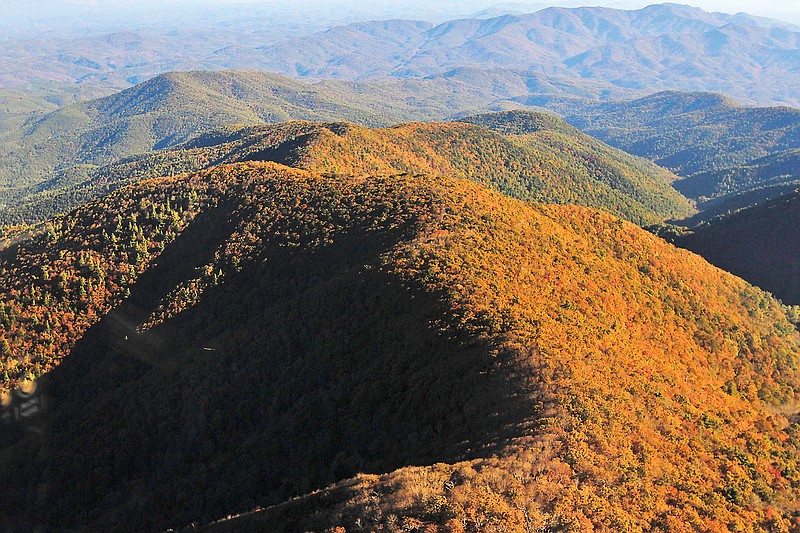Tennessee Republican senators Lamar Alexander and Bob Corker have introduced -- for a fourth time -- the Tennessee Wilderness Act.
This legislation, the Tennessee Wilderness Act of 2015, would safeguard nearly 20,000 acres of public land in the Cherokee National Forest.
Specifically, it would expand the Joyce Kilmer Slickrock, Big Frog, Little Frog, Big Laurel Branch, and Sampson Mountain wilderness areas, and create the new 9,000-acre Upper Bald River Wilderness Area -- the first new wilderness area for Tennessee in more than 25 years.
Wilderness areas
ADDITIONS * 1,836 acres: Monroe County's Joyce Kilmer-Slickrock Wilderness * 348 acres: Polk County's Big Frog Wilderness * 966 acres: Polk County's Little Frog Wilderness * 4,446 acres: Carter and Johnson counties' Big Laurel Branch Wilderness * 2,922 acres: Unicoi and Washington counties' Sampson Mountain Wilderness NEW * 9,038 acres: Monroe County's Upper Bald River WildernessSource: Tennessee Wilderness Campaign
Three times before, we've thought this legislation is a no-brainer -- an easy agreement for our dysfunctional Congress to sing a little Kumbaya over. We were wrong. And we're still waiting for 3rd District Rep. Chuck Fleischmann to step up and lead on this in the House
Never mind that a diverse coalition of hunters, anglers, business owners, faith leaders, outdoor recreationists, local lawmakers and conservationists are applauding this proposal and eager for a similar one in the House.
Wilderness areas add an important layer of conservation. They mean no new roads no logging. They preserve critical wildlife habitat, outstanding land and water recreational opportunities, and clean drinking water essential to nearby communities. And nothing about wilderness designation changes how hikers, campers, hunters, anglers, horseback riders, paddlers, swimmers, and rafters can continue to enjoy the popular Cherokee National Forest.
The areas included in this legislation is home to brook trout, black bear, bobcat, and white-tail deer and many migratory birds, as well as 4.5 miles of the Appalachian Trail and nearly 15 miles of the Benton MacKaye Trail.
This carries neither expense nor inconvenience to American taxpayers, and the U.S. Forest Service has formally recommended expanding wilderness in the Cherokee National Forest in their Land and Resource Management Plan.
Outdoor recreation is big business in Tennessee, boosting the local economy through outdoor recreation and tourism jobs. According to the Outdoor Industry Association's 2012 economic report, the outdoor recreation industry generates $8.2 billion in consumer spending in Tennessee each year and creates 83,000 jobs in the state.
This wilderness bill has no cost, no downside and would benefit Tennessee, the nation and the region. As a bonus, it preserves this beauty for generations to come.
Dawson Wheeler -- a long-time outdoor advocate and co-owner of Rock/Creek Outfitters, puts it this way: "This is beneficial to our region's development in many ways. The [outdoor] industry is historically recession-proof. It give s rural communities the opportunity to build businesses and improve real estate. But equally important is the simple preservation of the land."
Alexander and Corker are to be commended for their unwavering commitment to this effort to grow our wilderness footprint.
We would hope Rep. Chuck Fleischmann would make a similar effort in the House, where -- to date -- this effort has had no traction.
Most of the nation's wilderness has already vanished. What's left merits visionary work and lasting protection.
